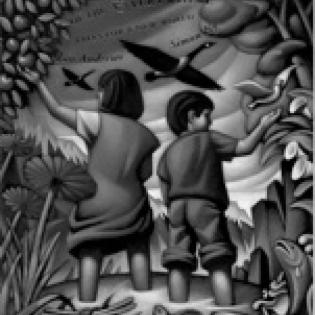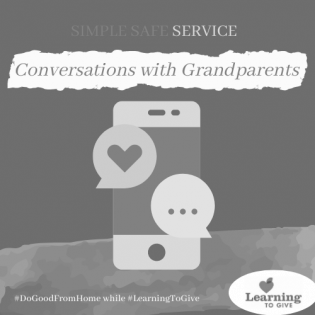The lesson provides learners with an opportunity to explore ways to become a hero for animals by promoting animal welfare and humane treatment of animals. Learners identify a local, state, national or international animal welfare cause and develop a personal service/advocacy plan, using the...
Filter by subjects:
Filter by grades:
Filter by audience:
Filter by issue area:
Filter by content type:
Filter by resource type:
resource search
Tell me a story...
Everyone brings something to a new country. Part of what Sayed brought was a terrible fear of never having enough. He had his reasons. In the small village he had come from, he had had so little.
Philanthropy is about generosity in all its many forms, commonly referred to as gifts of “time, talent, and treasure.” For this activity, you will learn how people can combine these gifts for even greater impact.
A Simple Safe Service project from home: Interview a grandparent or elderly friend to find out what they did for fun when they were young, and how it is the same and different than you. Follow your phone or video interview with a card in the mail. Or make friendly door hangers to donate to a local home for senior residents.
In this activity participants experience the appreciative inquiry approach of “looking at the good stuff in their organization and/or community.” Youth will look at organizations and communities as ‘half-full’ with potential, rather than ‘half-empty.’
In this activity participants learn through physical experience how people are involved in communities and introduce the idea of “holding in trust” through a physical activity.
George Washington Carver was a teacher, agricultural scientist and inventor who served Tuskegee Institute in Alabama for forty-seven years. He made many contributions to the world and the environment, including developing revolutionary crop rotation theory that helped conserve land from overuse. He educated and empowered farmers in agricultural techniques, particularly in the American South and founded the Carver Research Foundation.
Servant leaders are people who practice a leadership philosophy that “enriches the lives of individuals, builds better organizations, and ultimately creates a more just and caring world.” For this activity, youth create their own oral history recording by interviewing an individual who they consider a servant leader. Youth will glean lessons from the interview and create and preserve a historical record of a story that is worthwhile knowing.
Read profiles of "servant leaders" and use these brainteaser puzzles to reveal their philosophy of leadership.
In this activity participants get to know one another and discover their commonalities and differences. What similarities do I have with others? What differences do I have with others? Why are both important?


